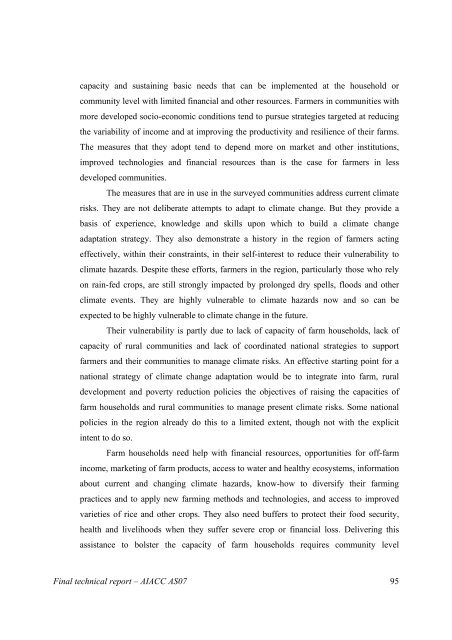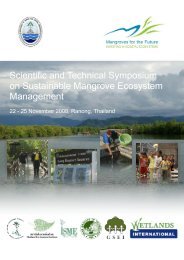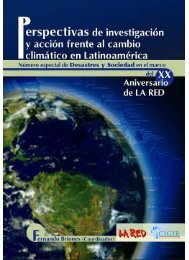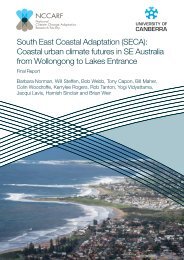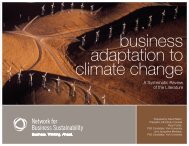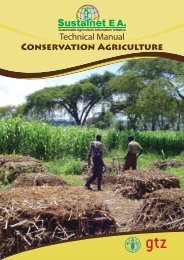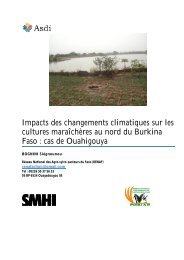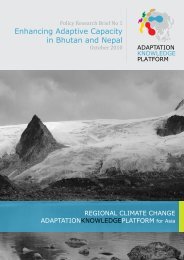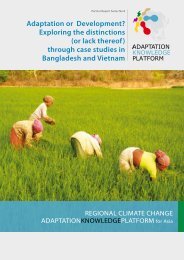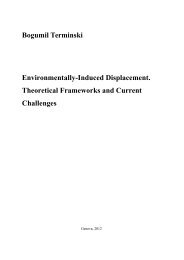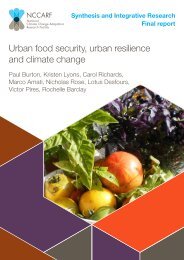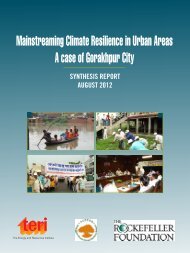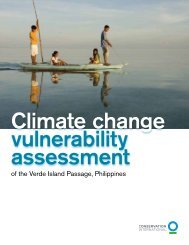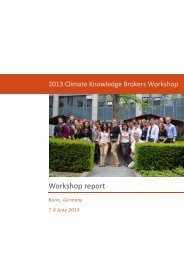Final Technical Report - weADAPT
Final Technical Report - weADAPT
Final Technical Report - weADAPT
- No tags were found...
Create successful ePaper yourself
Turn your PDF publications into a flip-book with our unique Google optimized e-Paper software.
capacity and sustaining basic needs that can be implemented at the household or<br />
community level with limited financial and other resources. Farmers in communities with<br />
more developed socio-economic conditions tend to pursue strategies targeted at reducing<br />
the variability of income and at improving the productivity and resilience of their farms.<br />
The measures that they adopt tend to depend more on market and other institutions,<br />
improved technologies and financial resources than is the case for farmers in less<br />
developed communities.<br />
The measures that are in use in the surveyed communities address current climate<br />
risks. They are not deliberate attempts to adapt to climate change. But they provide a<br />
basis of experience, knowledge and skills upon which to build a climate change<br />
adaptation strategy. They also demonstrate a history in the region of farmers acting<br />
effectively, within their constraints, in their self-interest to reduce their vulnerability to<br />
climate hazards. Despite these efforts, farmers in the region, particularly those who rely<br />
on rain-fed crops, are still strongly impacted by prolonged dry spells, floods and other<br />
climate events. They are highly vulnerable to climate hazards now and so can be<br />
expected to be highly vulnerable to climate change in the future.<br />
Their vulnerability is partly due to lack of capacity of farm households, lack of<br />
capacity of rural communities and lack of coordinated national strategies to support<br />
farmers and their communities to manage climate risks. An effective starting point for a<br />
national strategy of climate change adaptation would be to integrate into farm, rural<br />
development and poverty reduction policies the objectives of raising the capacities of<br />
farm households and rural communities to manage present climate risks. Some national<br />
policies in the region already do this to a limited extent, though not with the explicit<br />
intent to do so.<br />
Farm households need help with financial resources, opportunities for off-farm<br />
income, marketing of farm products, access to water and healthy ecosystems, information<br />
about current and changing climate hazards, know-how to diversify their farming<br />
practices and to apply new farming methods and technologies, and access to improved<br />
varieties of rice and other crops. They also need buffers to protect their food security,<br />
health and livelihoods when they suffer severe crop or financial loss. Delivering this<br />
assistance to bolster the capacity of farm households requires community level<br />
<strong>Final</strong> technical report – AIACC AS07 95


